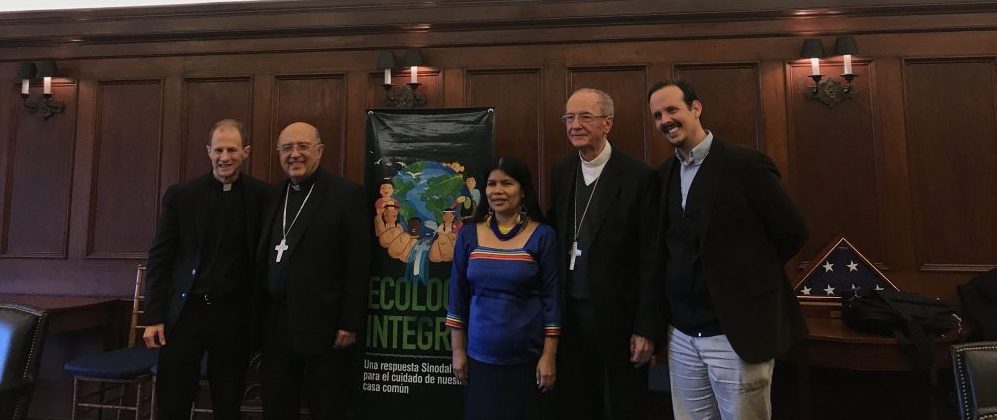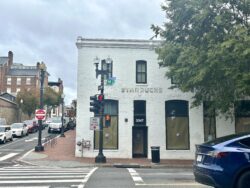Georgetown hosted the Pan-Amazon Ecclesial Network (REPAM) conference from March 19 to March 21 to discuss the preservation of the Amazon basin from extractive industries like oil drilling and logging. The conference featured a wide variety of speakers, including clergy members, scholars, and indigenous activists who are working to defend the Amazon.
REPAM was founded in 2015 as a partnership between the Catholic Church and indigenous Amazonian communities. Its goal is to coordinate the Church, indigenous communities, universities, and international organizations in defense of the Amazon region. The clerical involvement in conservation is largely in response to Pope Francis’ Laudato Si’, which directed all people to focus on the health of the planet, what he calls “our common home.” The conference aimed to center the focus on indigenous communities who largely bear the brunt of deforestation and extraction.
The conference comes at a time when deforestation in the Brazilian Amazon is at a 10-year high, according to the BBC. The rainforest lost 3,050 square miles from August 2017 to July 2018 alone. “This is going to destroy the Amazon and the ecological services it offers not just to the region, but to the world,” said Victoria Tauli Corpuz, a UN rapporteur on the rights of indigenous people, in a press meeting attached to the conference.
A few of the leading participants assembled for a press conference during the March 20 session to discuss the the focus of the conference, as well as the aspirations of those attending. This panel included the President of REPAM, Cardinal Cláudio Hummes, the Vice President, Cardinal Pedro Barreto, an indigenous Amazonian leader, Patricia Gualinga, and Corpuz. Additionally, the panel included Rev. Matthew Carnes, S.J., an associate professor of government and director of the Center for Latin American Studies at Georgetown.
The panel emphasized the need to work with and defend indigenous communities, who often face violence and threats for protesting deforestation. “Some [activists] are in prison, but others are threatened and harassed and it creates a lot of fear among people who are asserting their right to protect the Amazon,” Barreto said.
Furthermore, he said the threats often come from extractive companies and governments themselves. According to the Guardian, 70 people were killed in Brazil in 2017 over environmental disputes.
Many of these threats specifically target indigenous women, Gualinga said. “Many of us, including myself, have received death threats because we’ve been speaking against these extraction projects,” she said.
Highlighting the issue at the heart of these threats, Barreto explained that “indigenous communities have been there in this territory for centuries. Nevertheless, they are not recognized as the owners of their land.” He used indigenous communities as examples of how to live sustainably. “We need to learn from the indigenous communities to live in harmony with the water, the earth, and the air,” Barreto said.
The Georgetown conference was in preparation for a bishops’ conference in Rome in October of this year, where the church aims to formalize a plan of action against deforestation.
Gualinga said the church makes for a natural partner because of the fundamentally spiritual nature of conservation. “We’ve been struggling separately,” she said. “Some people only focus on being in touch with the earth, and the others focusing only on the heavens. We need to make that connection.”





